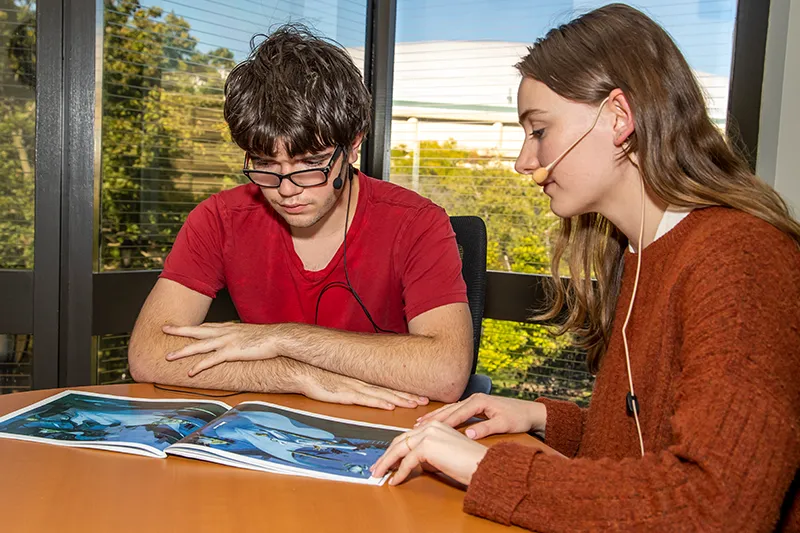Autism is a developmental condition characterized by difficulties with communication and social functioning, as well as restricted and repetitive behaviors or interests. Fragile X syndrome is the most common known genetic cause of autism.
There isn’t just one kind of autism, but many types, caused by different combinations of genetic and environmental influences. In 2013, the American Psychiatric Association merged four previously distinct diagnoses – autistic disorder, childhood disintegrative disorder, pervasive developmental disorder [unspecified], and Asperger syndrome – into one umbrella diagnosis of autism spectrum disorder. The Centers for Disease Control and Prevention estimates that today, 1 in 36 American children is diagnosed with autism. Autism is much more prevalent in boys than in girls (male-to-female prevalence ratio of 3.8).
Some more facts about autism:
- Autism’s most obvious signs tend to manifest around the age of 2-3 years. Early intervention can improve outcomes.
- Possible signs of autism at any age include:
- avoids eye contact and prefers to be alone;
- struggles with understanding other people’s feelings;
- remains nonverbal or has delayed language development;
- repeats words or phrases over and over;
- gets upset by minor changes in routine or surroundings;
- has highly restricted interests;
- performs repetitive behaviors such as flapping, rocking, or spinning;
- has unusual and often intense reactions to sounds, smells, tastes, textures, lights, or colors.
- The American Academy of Pediatrics recommends autism screening at all 18- and 24-month well-child visits, and whenever a parent or doctor has concerns. You can request an autism screening any time from your child’s doctor or your state’s Early Intervention program.
- About one-third of autistic people have an intellectual disability, and about one-third of autistic people remain nonverbal.
- Autism is frequently accompanied by some medical and mental-health issues, including gastrointestinal disorders, seizures, sleep disturbances, attention deficit and hyperactivity disorder, anxiety, and phobias.
The causes of autism are complex, but genes play a key role. At the Neurodevelopmental Diversity Laboratory at Northwestern University, our studies work to clarify the nature of communication challenges associated with autism, and to investigate how some subtle language features might run in families and may be connected to the genes involved in autism.


